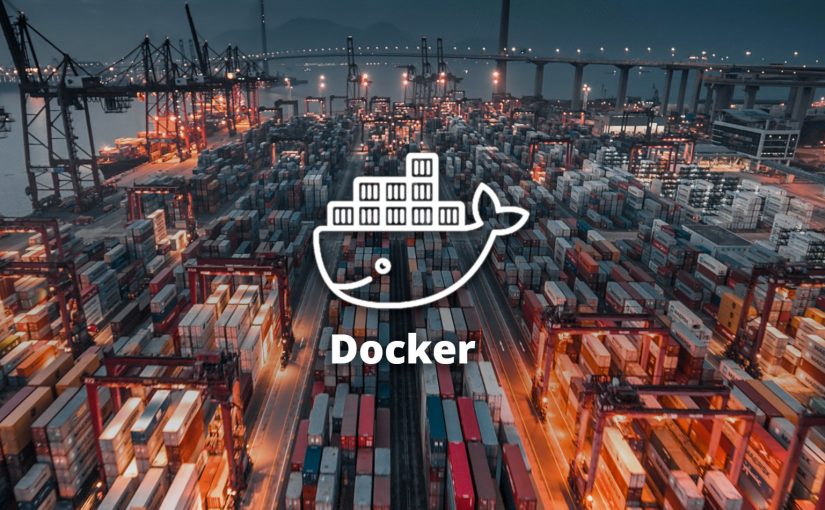Just this morning I had a very thorough and pleasant interview with a team that has its mission-critical stuff done with Angular. For me a good reason to check back with the Angular crew, also because they also were the pioneers of a PL that I’ve come to like and use in the mean time: TypeScript. And a revisit of Angular doesn’t disappoint.
An all new Angular weiterlesenKategorie: Cloud
Infrastructure as Code
Container-virtualisation and cloud infrastructure have become commonplace and the go-to default method of building and deploying applications and IT beyond trivial setups. This in turn has led to the industrialisation of virtual infrastructure and technologies that help construct and manage such virtual infrastructure.
Infrastructure as Code weiterlesenkrakenD API Gateway
For SOA in web development at some point you’ll need an API gateway. krakenD delivers with a web/https centric approach that is easy to scale and built with the Go programming language.
Next up: Low Power Computing
Obviously.
We knew this would be coming. Isn’t there any seasoned developer like me who doesn’t think that in the last two decades things have gotten out of hand? Most of the Web is dynamic for no good reason and recent tech-fads such as NodeJS or the Container/Docker Craze with its convoluted and bloated build, deploy and runtime requirements have taken resource consumption up to eleven. And certainly not just serverside. Just look at Googles favorite end-user VM Chrome and its energy requirements.
Next up: Low Power Computing weiterlesenAlle Docker Container stoppen
Um alle Docker Container zu stoppen, einfach diesen Befehl ausführen:
docker kill $(docker ps -q)Wie funktioniert das?
Der ‘docker ps’ Befehl listet alle laufenden Container. Die Option ‘-q’ listet nur die IDs. Diese liste übergeben wir dem ‘docker kill’ Befehl. Fertig.
Alle Docker Container entfernen
Wenn man die Container nicht nur stoppen, sondern auch entfernen will, einfach diesen Befehl ausführen:
docker rm $(docker ps -a -q)Dieser Befehl funktioniert genau so wie der obige, nur das die ‘-a’ Option auch alle Container listet, die nicht laufen und ‘rm’ (‘remove’) die Container entfernt.
Alle Docker Container stoppen weiterlesenMeet Deno, the new Node
Deno is a new implementation of a runtime environment by the original creator of Node. v1 came about roughly a year ago and it’s basically a redo of Node with all the insights gained and the newest proven technologies at its core. Deno is implemented in Rust and sports TypeScript as a native and first class citizen. By default Deno has no local access, it has to be given explicitly which is the right way to secure things. It has integrated tooling such as a bundler and a formatter and it loads external components via URI, so it’s basically SOA-ready by nature.
Meet Deno, the new Node weiterlesenModern Web Security
Modern Web Security is enabled and handled with up-to-date industry standards and solid service-oriented solutions for Identification, Authentication, Authorization, Access Control and Access Delegation, Encryption and Data Security.
Here’s an overview of contemporary industry standards for all that:
Professional Web Analytics
One does not have to suck up to Google & Co. or try to apply some magic SEO-Snakeoil in order to be diligent about professional web performance and search-engine friendlyness. Google doesn’t like people trying to trick them into higher pageranking and they are fast at retaliation and downmodding ranks a few thousand points when it comes to that.
Professional Web Analytics weiterlesenGitea – A very good Web Git GUI
My personal favourite when it comes to self-hosted web git gui’s isn’t GitLab as with most, but Gitea. Lightweight, fast, easy to install, easy to maintain and it has all the features you really need. Highly recommended by yours truely. Do check out this neat MIT licensed FOSS gem.
36C3 – Das nützlich-unbedenklich Spektrum
Ein guter Vortrag zum Thema “saubere Softwareentwicklung”:
SEO – Eine Begriffsklärung
Seit etwa zwei Jahrzehnten macht ein seltsamer Begriff im Dunstkreis des Themas Webentwicklung die Runde. Ein Begriff der bei professionellen Webentwicklern mitunter einen schalen Nachgeschmack und das Gefühl von schmierigen Gebrauchtwagenhändlern und Graumarkt Deals mit gefälschten Modelabels und Parfümmarken hinterlässt. SEO – Eine Begriffsklärung weiterlesen
25 Years of PHP
A very enlightening talk on PHP and its history. Rasmus Lerdorf thouroughly explains apparent inconsistencies and also explains why they make perfect sense. Get to know the in and outs of PHP and why it’s brilliant in its own way and why it’s so successful to this very day. This is a must-watch for every web software developer!
Apache Reverse Proxy Configuration
Despite rumors to the contrary, configuring Apache as a reverse proxy isn’t all that hard. Here’s an example: Apache Reverse Proxy Configuration weiterlesen
New EU Regulations in 2019: PSD2 SCA & 3D Secure 2
Directus & Cockpit
The JAMStack Approach
Tearing ties between frontend and backend apart, going headless or at least ‘headlose’, brazenly moving dynamic logic to the client and decoupling as much as possible into disparate microservices. This probably is the way to go forward in the 2020ies for web content. One degraded WordPress project to many has me seriously looking into this sort of thing now. The JAMStack Approach weiterlesen
Lumen
Lumen, a PHP Microservices Framework.
Rasmus Lerdorf, creator of PHP on PHP in 2018
“PHP runs crappy code really, really well.” – Rasmus Lerdorf
Rasmus Lerdof PHP Talk on PHP
Soll ich dieser Wolke trauen?
Die Wolke kommt. Das steht so gut wie fest. Die Frage ist nur, wie man damit umgehen soll? Soll man dieser Wolke blind vertrauen?
Die klare Antwort lautet schlicht und ergreifend:



















